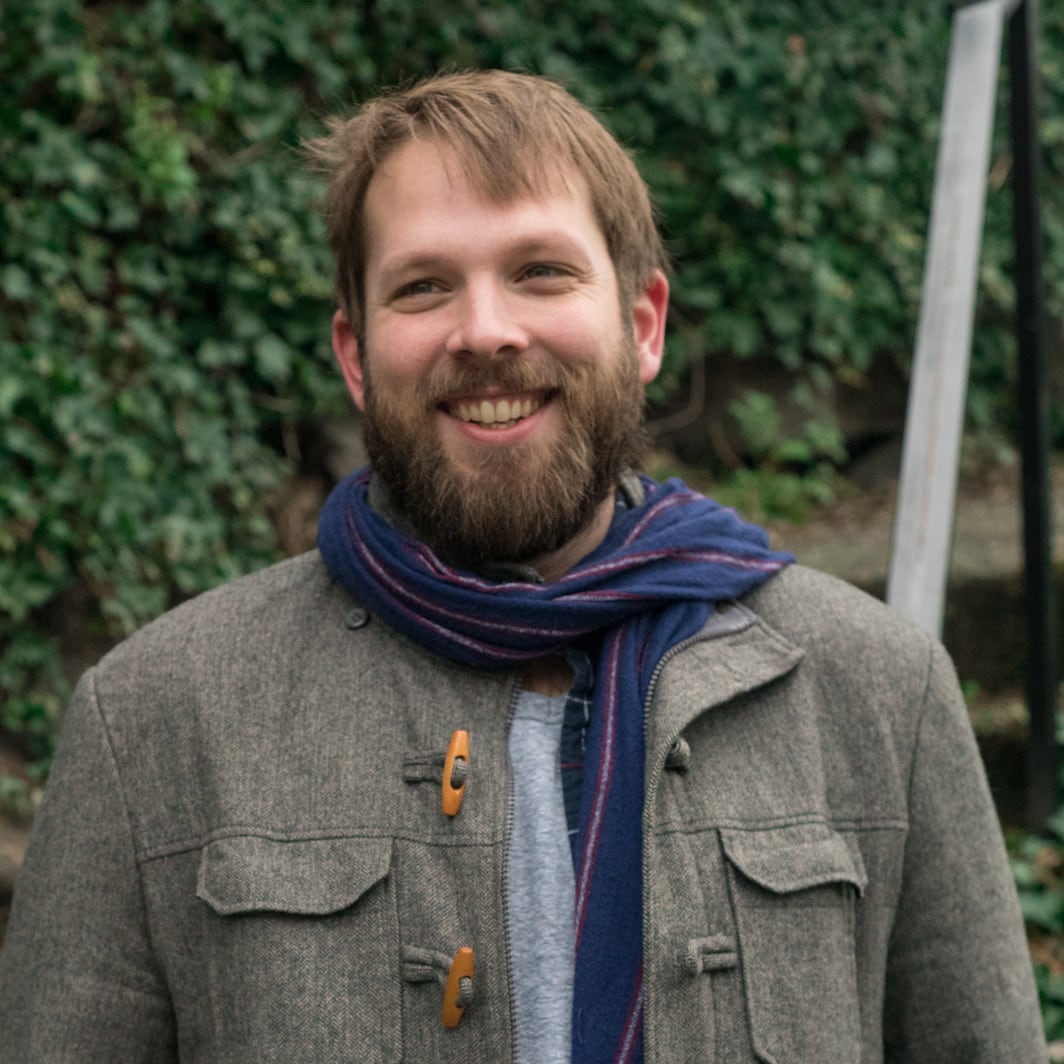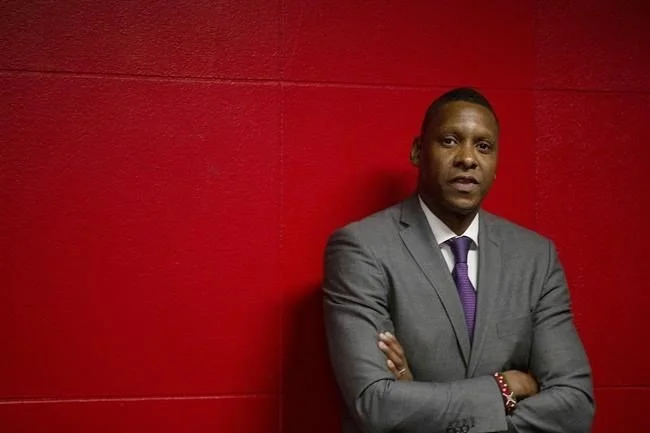BIO
Jake Uitti’s work has appeared in Vanity Fair, The Guardian, Interview, The Nation, Vice, The Athletic and many more publications. When not immersed mid-interview, Jake can be found in search of the city’s best fried chicken or cheese pizza slice. He is the co-author of memoirs with NBA Hall of Famers Robert Parish, Tim Hardaway and Michael Cooper, and co-author of The Sound of Seattle: 101 Songs that Shaped a City with his radio DJ wife. The son of Ivy League professors, Jake grew up amidst tomes of French literature, but soulful meals, thoughtful music, thrilling sports and compelling conversations are his true loves.
RECENT ARTICLES
Below is an excerpt from the new memoir from Hall of Famer Michael Cooper, COOP: The Making of a Showtime Lakers Legend. The text is taken from Chapter 7, in which Cooper talks about iconic coach Pat Riley taking over the Lakers in 1981. It was a seminal moment in both team and NBA history.
Today, Naismith Basketball Hall of Famer Tim Hardaway is known for many things. He was one of the best point guards in the 1990s. His Miami Heat teams clashed year after year with the New York Knicks. Hardaway was a brash trash talker and his “Killer Crossover” dribble was one of the most well-known moves in the league. All of these topics and more are highlighted in Hardaway’s new memoir, Killer Crossover: My Life from the Chicago Streets to Basketball Royalty.
Michael Cooper knew pressure. The NBA’s 1987 Defensive Player of the Year had won five rings with the 1980s Showtime Lakers, blocking shots alongside Kareem Abdul-Jabbar and finishing “Coop-a-loop” passes from Magic Johnson for dunks. But in 2000, things were different. He wasn’t in the game, he was coaching it from the sidelines for the WNBA’s Los Angeles Sparks. And despite Cooper being named coach of the year, the Sparks fell short in the playoffs to the Houston Comets.
The WNBA playoffs begin this weekend. It’s the latest in a string of glitzy moments for the league, which recently has seen the rise of Indiana’s Caitlin Clark and her rivalry with Chicago’s Angel Reese, along with skyrocketing revenue and the news of expansion into new markets. But as a bright future unfolds, we wanted to dive into the past to remember seven hoopers who helped make this all possible.
Dean Johnson wonders if he’ll ever be a bartender again. For 11 years, he worked in the neighborhood Seattle watering hole, Al’s Tavern, serving drinks at the cash-only spot, slinging drinks over long shifts. It’s the kind of job that makes you a local staple, a servant of the people. You get to know husbands and wives, friends and colleagues. But while patrons would come and go through Al’s door, and as Dean stood dutifully behind the bar, something else was going on. Some customers knew, but it was also something of a secret amongst them. Johnson was a world-class songwriter.
Today (July 18), the Long Beach, California-born band Sublime has released their latest single, “Ensenada.” But while day-one fans of the ska punk band know it as a project fronted by vocalist Bradley Nowell, the group today is actually fronted by the late Bradley’s 30-year-old son, Jakob Nowell.
When Masai Ujiri, the former head decision-maker for the NBA champion Toronto Raptors, thinks back on his childhood, the word “freedom” comes quickly to mind. Ujiri, who was born in England but grew up in Zaria, Nigeria, says he was able to live more freely back then than compared to even his own children and their peers today. They could walk where they wanted, play basketball during their downtime, and go to a friend’s house and play ping-pong. Today, a child’s life seems much more claustrophobic.
Gavin Rossdale, the frontman for the British-born rock band Bush, says he’s been “obsessed” with loneliness his whole life. If you saw his handsome face on MTV in the 1990s, you might be hard pressed to think he would ever be lonely. That it was even humanly possible. But if you listened to his songs, you would’ve heard what Rossdale means. Think of their signature track, “Glycerine.” On it, he sings: I’m never alone, I’m alone all the time. It’s also something he notices in other people (cue: Paul McCartney’s violins).
In 2012, Macklemore & Ryan Lewis released their hit single, “Same Love”. The track was a major force in the debate for marriage equality and expressed sentiments of acceptance, tolerance and, of course, love. But the track would not nearly have had the impact it did had it not been for the inclusion of singer Mary Lambert.
It’s the dream of every kid who picks up a baseball bat. The score is tied, 1-1. It’s the bottom of the ninth inning. With one swing, you have the chance to make history. That’s the situation Seattle Mariners catcher Cal Raleigh found himself in on 30 September 2022. His manager called him up to bat with the game on the line. If his team won, they’d end a 20-year playoff drought. So, what did Raleigh do? He smacked a full-count, pinch-hit, walk-off dinger deep to right field. Cue: the victory music.
Peter Buck, the former lead guitarist for the iconic rock band R.E.M., is one of the most prolific and collaborative artists you can ever meet. Over a handful of decades making music, he’s worked in seemingly countless projects. But his latest offering is a new supergroup with Barrett Martin, Duke Garwood, Alain Johannes, and Lisette Garcia called Drink the Sea.
On Friday (May 30), the Madison, Wisconsin-born rock band Garbage will release their newest LP, Let All That We Imagine Be The Light. The music on the record is a testament to seeing the world with new eyes. Eyes that want to see more.
Two-time NBA All-Star Reggie Theus remembers the 1981 playoffs. In a “big time” opening round series, his Chicago Bulls faced the New York Knicks. The first game tipped off in one of the world’s most famous arenas, Madison Square Garden, and it included stars such as Artis Gilmore, Bill Cartwright and Michael Ray Richardson. The Bulls won game one and went on to win the series, playing Larry Bird and the Boston Celtics in the next round. Theus scored 37 points in the clincher against New York, an overtime victory in the Windy City. But it was a thrill he never quite felt again.
Natalie Bergman is numinous. The spiritual-minded artist writes songs that seem to have been around for decades, perhaps even hundreds of years. And yet they are brand new. With a blend of gospel, doo-wop, rock, and soul, Bergman offers an authentic bent on music that is timeless.
Welcome to Act III of the 2024-25 NBA season. It was a rough start for the league this year. People came out of the woodwork to criticize it, offering wild solutions, and pointing out the low early season TV ratings. But then the Dallas Mavericks traded Luka Dončić to the Los Angeles Lakers and things got real interesting in Act II.
Now, though, we’re in the third portion of the season and it couldn’t be more exciting. Indeed, we seem far away from those calls for sweeping change. Let’s look at five players who have wowed us and taken us to the edge of our seats in this third act.















